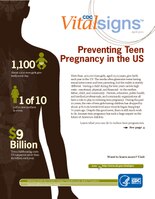
Photo from wikipedia
In this multicentre cohort study, we evaluated the risks of maternal ZIKV infections and adverse pregnancy outcomes among exposed travellers compared to women living in areas with ZIKV circulation (residents).… Click to show full abstract
In this multicentre cohort study, we evaluated the risks of maternal ZIKV infections and adverse pregnancy outcomes among exposed travellers compared to women living in areas with ZIKV circulation (residents). The risk of maternal infection was lower among travellers compared to residents: 25.0% (n = 36/144) versus 42.9% (n = 309/721); aRR 0.6; 95% CI 0.5–0.8. Risk factors associated with maternal infection among travellers were travelling during the epidemic period (i.e., June 2015 to December 2016) (aOR 29.4; 95% CI 3.7–228.1), travelling to the Caribbean Islands (aOR 3.2; 95% CI 1.2–8.7) and stay duration >2 weeks (aOR 8.7; 95% CI 1.1–71.5). Adverse pregnancy outcomes were observed in 8.3% (n = 3/36) of infected travellers and 12.7% (n = 39/309) of infected residents. Overall, the risk of maternal infections is lower among travellers compared to residents and related to the presence of ongoing outbreaks and stay duration, with stays <2 weeks associated with minimal risk in the absence of ongoing outbreaks.
Journal Title: Viruses
Year Published: 2021
Link to full text (if available)
Share on Social Media: Sign Up to like & get
recommendations!